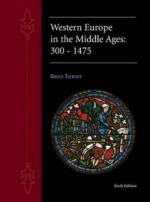|
This section contains 2,011 words (approx. 7 pages at 300 words per page) |

|
Representative Philosophers. With the advent of the fourteenth century came a deepening of philosophical acumen. Three representative figures stand out: John Duns Scotus (circa 1266 - 1308), William of Ockham (circa 1285 - 1347), and Meister Eckhart (circa 1260 -1328). All were members of religious orders and influenced philosophical thought well beyond the Middle Ages.
Duns Scotus. The American founder of modern Pragmatism, Charles Sanders Peirce, formed the belief that Duns Scotus was one of the most accomplished of all philosophical thinkers, and the modern German philosopher Martin Heidegger wrote part of his doctoral dissertation on him. Duns Scotus placed great importance on the notion of the human will. He believed that the human ability to make decisions is not compromised by factors such as one's temperament, one's environment, or one's genes. Thus, he was a strong advocate of the notion of freedom of...
|
This section contains 2,011 words (approx. 7 pages at 300 words per page) |

|




